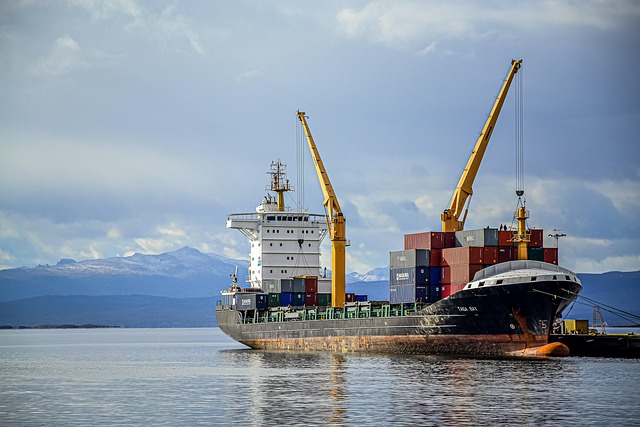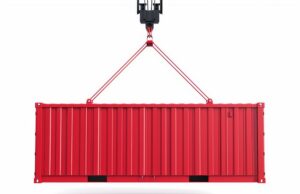In today's globalized trade, efficient long-distance goods transport is crucial. Shipping containers revolutionized shipping, but maintaining consistent internal temperatures in varying climates remains a challenge. Specialized insulated cargo containers protect contents from extreme conditions, vital for perishable items like food and pharmaceuticals. With the rise of e-commerce, demand for reliable storage containers with advanced temperature regulation has surged. Insulated shipping containers use innovative technologies and materials to maintain consistent temps, ensuring safe transport across various modes. This stability optimizes logistics, minimizes waste and damage, enhances customer satisfaction, and streamlines supply chain management.
In today’s globalized world, reliable temperature control during transit is paramount, especially for temperature-sensitive goods. This is where insulated shipping containers step in as game-changers. Understanding the need for these specialized containers involves recognizing the challenges posed by varying climates and their impact on perishable items.
This article explores the technologies and materials behind the insulation, delving into how they maintain consistent internal temperatures, ultimately ensuring product integrity. We’ll also highlight the significant benefits this offers to various industries, all while focusing on the role of shipping containers as versatile and essential tools.
- Understanding the Need for Insulated Shipping Containers
- Technologies and Materials Used in Insulated Shipping Containers
- Benefits of Maintaining Consistent Internal Temperatures
Understanding the Need for Insulated Shipping Containers

In today’s globalized world, the efficient and secure transport of goods over long distances is paramount to international trade. Shipping containers have revolutionized container shipping, making it faster, safer, and more cost-effective than ever before. However, maintaining consistent internal temperatures within these freight containers, especially during transit across varying climates, remains a significant challenge. This need for insulation has led to the development of specialized cargo containers designed to protect their contents from extreme environmental conditions.
The importance of insulated shipping crates becomes evident when considering the diverse nature of goods transported globally. Perishable items like food and pharmaceuticals require precise temperature control to prevent spoilage during container transport. Moreover, with the rise in e-commerce, the demand for efficient and reliable storage containers has surged, emphasizing the need for advanced temperature regulation. By addressing this requirement, insulated sea containers and refrigerated containers ensure product quality, safety, and compliance with international standards, fostering a robust global supply chain.
Technologies and Materials Used in Insulated Shipping Containers

Insulated shipping containers rely on a combination of advanced technologies and innovative materials to maintain consistent internal temperatures, ensuring the safe transport of temperature-sensitive freight across various modes of transport, including sea container, container shipping, and intermodal container systems. These include highly efficient insulation materials that are designed to trap air and minimize heat transfer, much like a high cube container or refrigerated container would use.
Specialized linings and coatings, often made from reflective or absorptive materials, further enhance the insulation properties of these containers. In terms of materials, foam insulations made from closed-cell structures are commonly used due to their excellent thermal resistance and water tightness. Additionally, modern shipping containers now incorporate advanced climate control systems that use technology akin to what you’d find in a modular container or office container, allowing for precise temperature regulation and monitoring, thereby optimizing the transport of perishable goods and ensuring quality during container leasing or rental periods.
Benefits of Maintaining Consistent Internal Temperatures

Maintaining consistent internal temperatures in shipping containers offers a multitude of advantages for various industries. One of the key benefits is ensuring the integrity and quality of goods during transit, especially for temperature-sensitive items like food, pharmaceuticals, or chemicals. By controlling the internal climate, businesses can prevent spoilage, degradation, or reaction, thereby reducing waste and associated costs. This stability also extends to the structural integrity of the cargo, minimizing potential damage caused by sudden temperature changes.
Moreover, consistent temperatures play a pivotal role in streamlining logistics operations. In the realm of container shipping, this means efficient and seamless transport across different modes—sea containers, intermodal containers, or refrigerated crates—without interruption or need for intermediate re-inspection or recalibration. This efficiency, coupled with reduced handling, translates to faster delivery times, improved customer satisfaction, and optimized supply chain management for businesses leveraging storage containers, container leasing, or container rental services in their operations.
Insulated shipping containers have revolutionized global logistics by offering a sustainable and efficient solution for temperature-controlled transportation. By utilizing advanced technologies and materials, these containers maintain consistent internal temperatures, ensuring the integrity of perishable goods. This benefits both businesses and consumers by reducing waste, minimizing damage, and enhancing food safety. As the demand for eco-friendly shipping continues to grow, insulated shipping containers will undoubtedly play a pivotal role in shaping the future of logistics.
